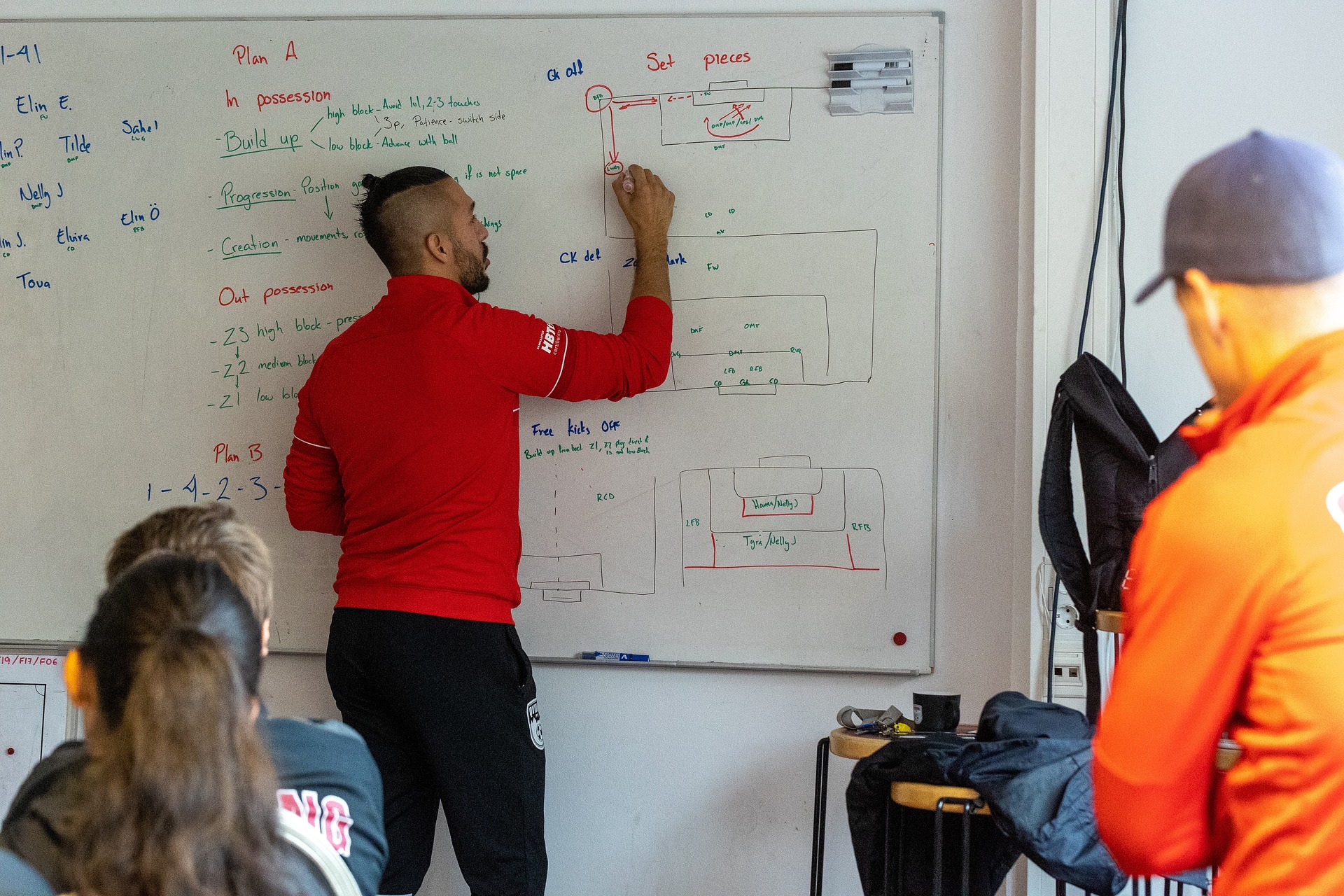Provision of concussion information by coaches and attendance of athletic trainers: Findings from the 2021 YouthStyles Survey
Daugherty J, Waltzman D, Sarmiento KJ Athl Trein. January 16, 2023. doi: 10.4085/1062-6050-0454.22. E-publishing prior to printing. PMID: 36645830.
Full text freely available
Take home message
More than 40% of adolescents participating in sports reported that their coach had not provided them with concussion information in the past year. This lack of communication may be linked to a lack of access to athletic trainers during games and practices.
Background
Coaches can provide concussion education and make a positive impact by translating concussion knowledge into healthy behaviors, such as reporting suspected concussions. Coaches who complete concussion training and relay that information to their athletes positively impact an athlete’s perspective on concussions. However, it is unknown how often coaches discuss concussion education with the athletes and whether the presence of an athletic trainer helps with better communication between coach and athlete.
Study aim
The authors used survey data to examine how often coaches provided concussion safety information to their athletes and whether this varied based on the presence of athletic trainers at games and practices.
Methods
In June 2021, adolescents living with Ipsos Knowledge Panel member parents were invited to complete the annual YouthStyle Web-based survey. Approximately 48% of invited adolescents completed survey questions about history of concussions, information about concussion safety, how concerned they think their coach is about concussion safety, and the frequency of athletic trainers at games and practices in the past year . The authors took statistical steps to ensure that the data represented adolescents across the United States.
Results
Of the 829 adolescents, 39% reported having participated in sports in the past twelve months: 1) only in school sports (19%), 2) only in sports competitions (13%), or both (7%). The most commonly reported sports were basketball and football. Nearly half (47%) of youth athletes reported that their coach discussed concussions. Additionally, 32% reported receiving a handout, and 23% said their coach had sent them an email or had them watch a video in the past 12 months. Overall, 58% of adolescent athletes reported that their coach discussed or provided information about concussions. More youth athletes who participated in school sports (65%) reported receiving this information, compared to athletes who only participated in non-school sports competitions (39%). About half of youth athletes indicate that they have an athletic trainer during training (55%) or competitions (55%). Youth athletes who participated in school sports were more likely to report having access to athletic trainers (72%) than those who participated on non-school sports teams (49%). Of youth athletes who always/sometimes had an athletic trainer, 63% reported that the coach talked to them about concussions, compared to 24% of youth athletes who rarely or never had access to athletic trainers.
Viewpoints
Four in 10 athletes report that their coaches do not discuss concussions or provide concussion information. The authors found that access to an athletic trainer can improve communication between coaches and youth athletes. It would be interesting to know if the athletic trainer increases the amount of communication as they provide resources for the coaches to share with athletes. It would be helpful to understand how athletic trainers can improve a coach’s concussion communication with athletes. Furthermore, this study focused on whether the coach provided information, and not on the quality of that information. It would be interesting to know how well the education worked. Coaches without access to athletic trainers may provide concussion information to the athletes, but the athlete does not remember it because it was not helpful.
Clinical implications
We must encourage coaches to consistently educate athletes about concussions to improve reporting behavior among youth athletes. In addition, sports trainers have a positive influence on communication between coach and youth. So when we encourage administrators to hire full-time athletic trainers, we can remind them that athletic trainers can help coaches better communicate about concussions and other injuries with their athletes.
Questions for discussion
Are you trying to get coaches to talk to the athletes about concussions? If so, have you seen better results in communication, knowledge and reporting behavior?
related posts
- Improving Concussion Education: Consensus from the NCAA Department of Defense Mind Matters Research and Education Grand Challenge
- CDC Heads Up program increases concussion knowledge and injury communication
- Peer-led concussion education can improve concussion knowledge and reporting behavior
- Concussion education videos. Viewing once does not help with Info Stick
- Coaches are provided with information about concussions with a five-minute fact sheet
- Concussion knowledge is getting better, but concussion reporting is getting worse
- Better attitudes can improve reporting habits
- Center for Concussion Education and Research – Peer Concussion Education
Written by Jane McDevitt
Reviewed by Jeffrey Driban


Leave a Reply